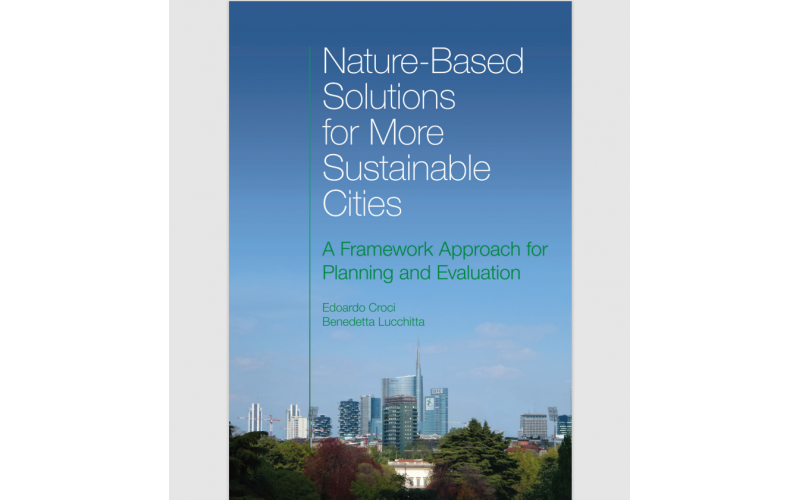There is a growing recognition and awareness that nature can help provide viable solutions to reduce vulnerability and generate value deploying the properties of natural ecosystems and the services they provide. Investing in nature can lead to substantial environmental, social, and economic benefits by reducing pollution, decreasing energy costs, improving health and well-being, and increasing resilience to climate change and natural disasters. In order to make a clear case of performances, impacts, and benefits generated by NbS in cities, a comprehensive framework approach is delivered, from design and planning of NbS to their socioeconomic evaluation.
The book provides:
• a methodological framework to design, plan, implement, maintain, and evaluate NbS in cities;
• a classification of NbS to contribute to face specific challenges in cities (heat waves, flood risk, air pollution, etc.);
• the assessment of policies and instruments to foster the implementation of NbS in cities;
• an analysis of the impacts (social, economic, and environmental) generated by NbS in cities;
• several case studies to highlight the capacity of NbS to cope with cities’ challenges.
To achieve these objectives the book is structured in five sections, starting from framing and defining urban NbS, then dealing with their design and planning, passing to evaluating their economic and social impacts, up to assessing governance instruments at different scales. The final chapter provides reference cases and best practices from global cities (Paris, New York, Beijing) and other urban contexts territories (Belo Horizonte, Ruhr, etc.).

